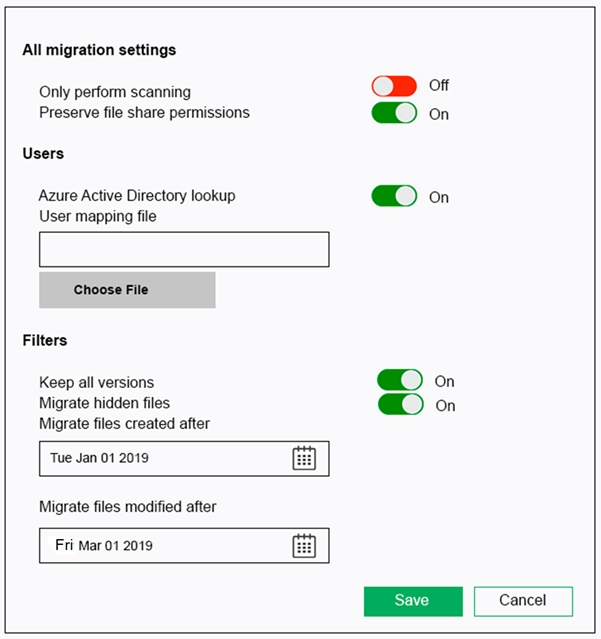

HOTSPOT -
Your network contains an on-premises Active Directory domain. The domain contains a server named Server1. Server1 has a share named Share1 that contains the files shown in the following table.
You have a hybrid deployment of Microsoft 365.
You create a Microsoft SharePoint site collection named Collection1.
You plan to migrate Share1 to a document library in Collection1.
You configure the SharePoint Migration Tool as shown in the exhibit.
For each of the following statements, select Yes if the statement is true. Otherwise, select No.
NOTE: Each correct selection is worth one point.
Hot Area:

VikingSWE
Highly Voted 3 years, 11 months agoVikingSWE
3 years, 11 months agoarunjana
3 years, 10 months agoAnoniMouse
Highly Voted 3 years, 12 months agoStartkabels
Most Recent 2 years, 5 months agoNilz76
3 years agokanag1
3 years, 3 months agojoergsi
3 years, 2 months agoDK_edu
3 years, 2 months agoLillyLiver
3 years, 2 months agofofo1960
3 years, 3 months agoJakeH
3 years, 5 months agosmudo1965
3 years, 6 months agoLinux09
3 years, 7 months agolengySK
3 years, 8 months agoemilianogalati
3 years, 8 months agoMadball
3 years, 9 months agochaoscreater
3 years, 10 months agobwl
3 years, 10 months agomaikelb
3 years, 11 months agomelatocaroca
3 years, 10 months agolokylook
4 years ago000zest
4 years agoAlexLiourtas
3 years, 4 months agojaphar
3 years, 12 months agoRazuli
3 years, 12 months agolucidgreen
4 years ago